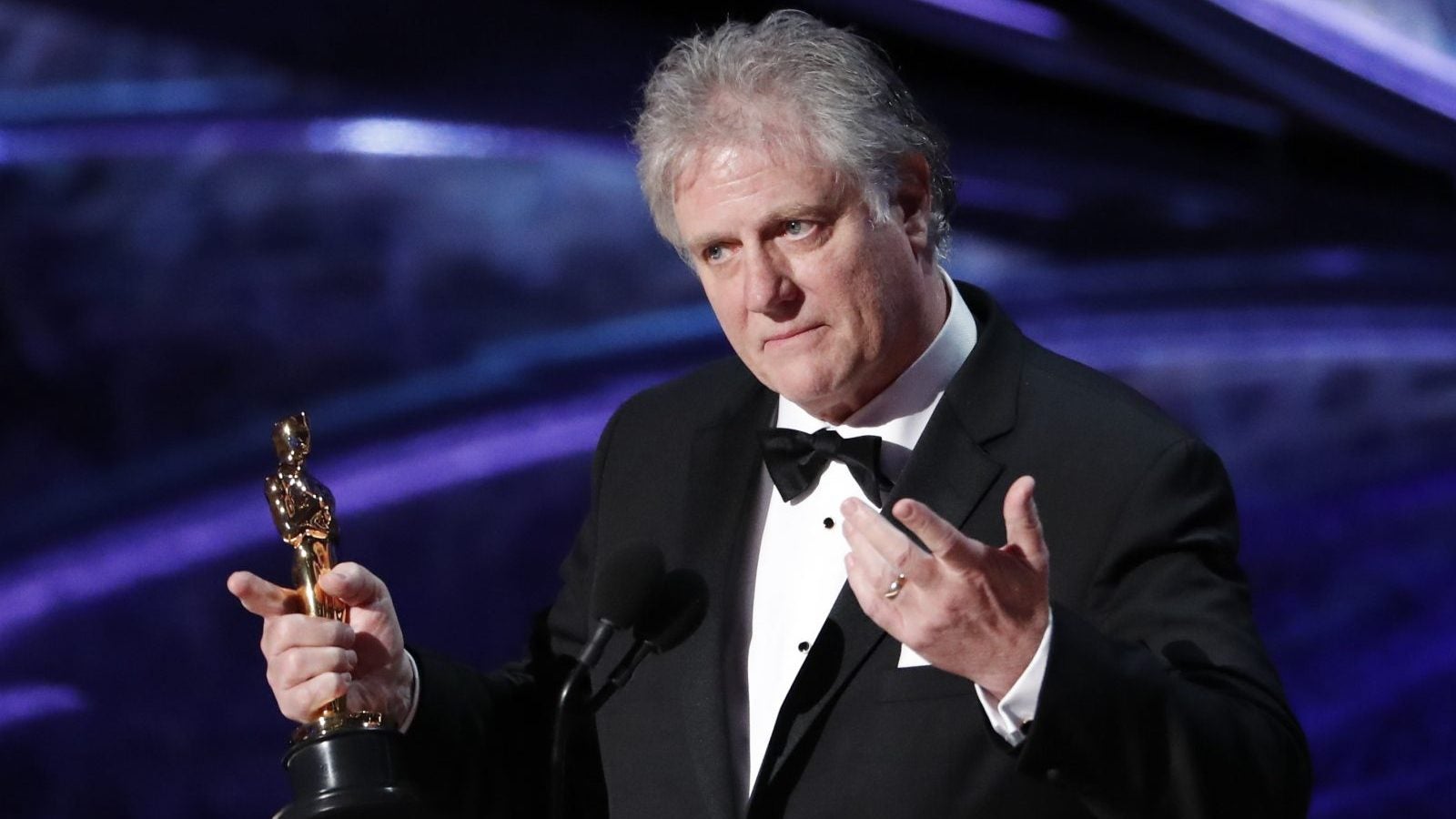How should we feel about the Oscar winner who thanked his wife for giving up her career?
At last night’s Academy Awards, the sacrifices that women sometimes make to support their partners’ careers had an uncomfortable moment in the spotlight.


At last night’s Academy Awards, the sacrifices that women sometimes make to support their partners’ careers had an uncomfortable moment in the spotlight.
“The real support comes from home,” Donald Sylvester, who won an Oscar for sound editing in the film Ford v Ferrari, said in his acceptance speech. “So I want to thank my wonderful wife of 34 years, who gave up her editing career for me to pursue my career. But she raised our kids, and she did a great job, because neither one of them are politicians.”
In this enlightened age, the Academy Awards audience seemed uncertain about how to react to such a disclosure. A light smattering of applause began as Sylvester thanked his wife, Penny Shaw. Then the clapping jerked to a stop.
It’s one thing for a parent to choose to stay at home with the kids if that’s what they want, but Sylvester’s phrasing—that his wife “gave up her editing career for me to pursue my career”—seemingly jolted the audience. Perhaps they were conjuring images of an alternate universe where it was his wife, and so many more women, whose work got recognized with an Oscar. (The awkward moment was saved by Sylvester’s joke about politicians; the audience went ahead at that point with cheerful applause.)
Shaw also apparently helped her husband get his start in sound editing. In a 2018 interview with film festival CEO and blogger Matthew Toffolo, Sylvester explained that he was working in the music business when “my wife, who was a film editor, suggested that motion pictures and I would be a good fit. My skills and instincts fit right in. She was right.”)
It’s not worth speculating on the dynamics that led the couple to prioritize Sylvester’s career, as it’s quite possible that both husband and wife were perfectly happy with the way they divvied up their work and home lives. But the public response to Sylvester’s speech is quite telling, as it underscores an increasing cultural impatience with the idea that women should support their partners’ careers at the expense of their own.
Affordable childcare would go a long way toward solving the issue. Melissa Silverstein, founder and publisher of the gender-equality advocacy site Women and Hollywood, noted after Sylvester’s speech, “If that is not a message for better childcare policies for women in this industry I don’t know what is.”
The long hours involved in many film and television jobs make childcare a particularly pressing issue for many working mothers in the industry, with celebrities like Carey Mulligan and Zoe Saldana speaking out about the need for on-set childcare for both cast and crew. Saldana told Allure that one studio bristled when she specified that she needed childcare to cover 15-hour days on set. For this to be “considered a perk, or ‘Give this to me; I’m having a diva fit’? No. This is a necessity that you must cover for me in order for me to go and perform my job,” she said.
Until the industry takes real strides toward accommodating working parents, it’s likely that Hollywood’s gender inequality will remain entrenched. The ratio of men to women in the film industry is 5 to 1, according to a 2018 report from the New York Film Academy. That means there are a whole lot of talented women whose work the world is missing out on.